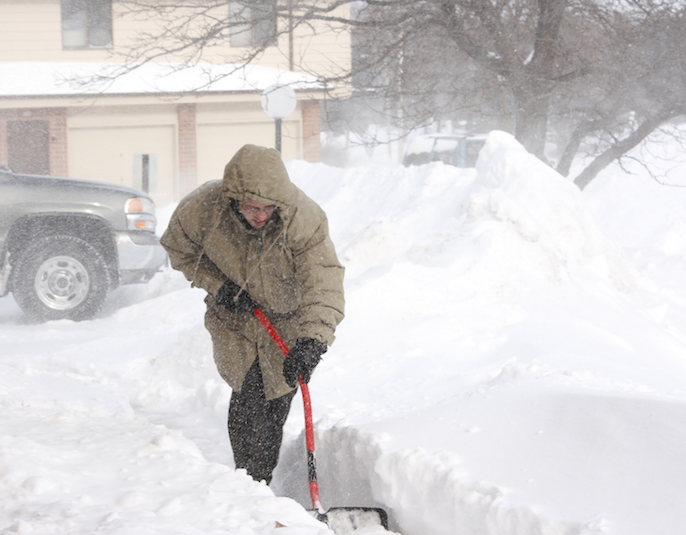
On average, a new 1,000-square-foot (304.8 m2) driveway costs between $2,000 and $5,000 (approximately $2,700 - $6,700 CAD) to install, and a professional resurfacing job on the same driveway will typically cost around $2,250 (approximately $3,000 CAD). With driveway installation and maintenance expenses running so high, it is imperative that homeowners find ways to get the full lifespan out of their driveways. An asphalt driveway will typically last around 20 years, and a concrete driveway 25 years, but winter weather could significantly shorten that time period unless you learn to protect your driveway from harm during snow and ice season.
Protecting Your Concrete
The number one enemy of concrete is rock salt (sodium chloride). While effective at melting snow and ice at temperatures as low as 20 °F (-6.67 °C), during colder weather it allows melt-off to refreeze. This leads to a long series of alternating freezing and thawing, which will erode your concrete driveway's surface. The reason for this is that concrete is porous, and water gets trapped inside, then expands when it turns to ice, and breaks off microscopic chips of your driveway. Additionally, rock salt has the highest quantity of chloride ions in it of any deicer, and these ions can dissolve in water and pollute local lakes and rivers. Finally, rock salt can also sink deep into concrete through tiny fissures and accelerate the corrosion rate of steel rods that are embedded in your concrete to reinforce it.
By using an alternative deicer, you can make your concrete last years longer and cost you less in repairs along the way. Calcium chloride is the most commonly used driveway salt in the northern U.S., and it can continue to melt snow even in below-zero temperatures. It does react chemically with concrete so as to make it flake somewhat, but it is much less damaging than rock salt. The latest deicing salt to hit the market, however, is magnesium chloride, which melts snow down to about -13 °F (-25 °C), is less damaging to concrete than calcium chloride, and releases 40% fewer chloride ions than does sodium chloride.
Protecting Your Asphalt
While the freeze/thaw cycle is harshest on a concrete driveway, it can damage an asphalt driveway as well. Specifically, though concrete is not immune to damage from sharp objects like blades, asphalt is particularly prone to this problem.
First of all, it is best to use a plastic shovel since metal shovels can dig into the asphalt and chip away at existing cracks to make them wider. Second, shovels, snowplows, and blower blades must be kept at least half an inch above the asphalt to prevent damage. This is especially important if there are any uneven surfaces. Third, snow and sleet should be removed before it has a chance to get compacted down and freeze. Otherwise, it will be hard to remove without damaging the asphalt, and snow will be pressed down into the asphalt to melt and refreeze later. Hail damage is also an issue, but there is little you can do to prevent it. The best thing to do is simply to add hail coverage to your homeowner's insurance policy if it is not already included.
Finally, studded tires, though they can make your winter drive safer, also cause damage to both asphalt roads and asphalt driveways. A band of tiny holes will appear as you drive over the same area again and again, and you will need to reseal this "rut" in the spring or summer to prevent further encroachments.
Rock salt, metal snow shovels, studded tires, and more can threaten the lifespan of your concrete or asphalt driveway when winter arrives. However, following some basic preventative maintenance will minimize the risk.


